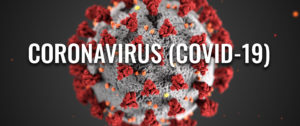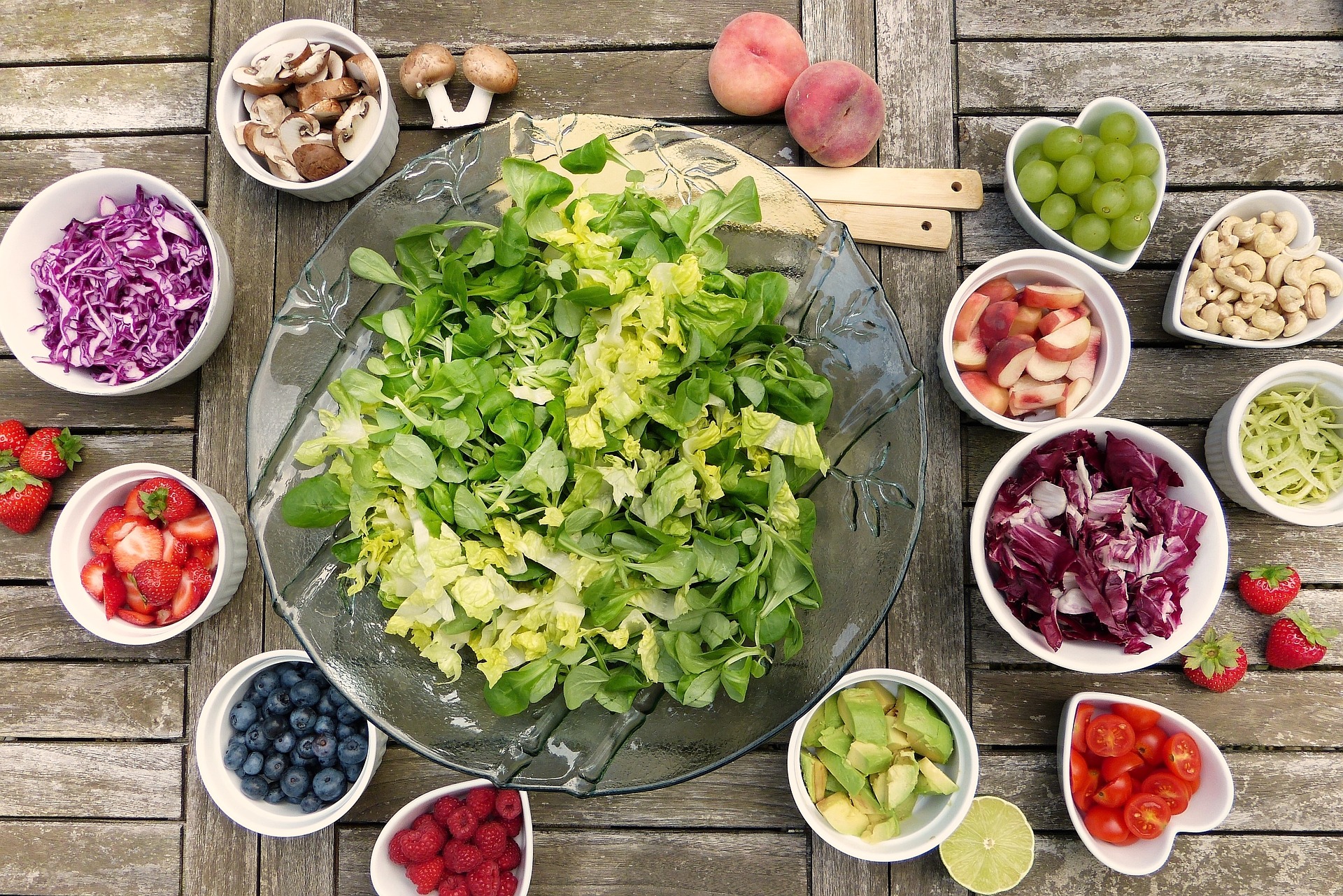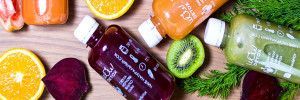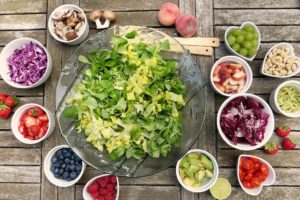Coronavirus: what do you need to know and how can you protect yourself and your loved ones
As I watch the wave of panic and fear spread around, I decide to use the an authority of a triple board certified physician who is trained in integrative medicine to post this info regarding the Coronavirus (COVID-19):

1. The pandemic of COVID-19 is here, and it will be here for a while. It is likely that you will know someone who is infected. Be prepared and take steps to protect yourself, your family, and your friends. Above all, do not succumb to fear, stay rooted in your heart, but be prudent. Let’s spread wellbeing instead of spreading fear.
2. Major Risk Factors: The COVID-19 infection can be asymptomatic, can have a course of mild viral illness, or could manifest as a severe pneumonia that causes sepsis and multi-organ failure. A study published in Lancet (premier medical journal) on March 9th retrospectively evaluated patients in Wuhan, China diagnosed with the COVID-19 virus throughout December to January 31st. Major risk factors for mortality include advanced age, presence of co-morbidities such as hypertension, diabetes and coronary heart disease, multiple organ involvement and presence of coagulopathy (increased clot formation by blood test called D-dimer) on admission. However, the last two factors are modifiable since they present in advanced cases common in people who wait and do not seek an appropriate care.
3. Symptoms: If you are sneezing or have a congested nose, it’s not the COVID-19 infection. The top symptoms in the above study include a fever (94%), cough (79%), sputum production(23%), myalgia(15%) and fatigue (23%). If you have a fever and a dry or productive cough, you might need to be checked out.
4. Diagnostic tests: The best lab test is a PCR analysis that determines a viral RNA. The turnaround time is three days. Data from China suggest that the best, more rapid test is a CT chest scan. The COVID-19 has specific radiological signature, which may be readily diagnosed by this type of scan. If you strongly suspect that you might be infected, insist on getting a chest CT.
5. Treatment is available. It includes 150 mg of Tamiflu, and 500 mg of Chroroquine twice a day for five days for mild disease or a full HIV protocol, together with IV steroids for severe cases. Make sure to stay aware and alert: if you are not elderly or chronically ill, you should be fine if infected, proving that you seek prompt medical care.
6. Mortality: South Korea has one of the most sophisticated systems in the world to track the COVID-19. According to their data, the mortality is about 0.5%. It is comparable with mortality from the influenza virus; so make sure to keep that in perspective.
7. How does it transmits and how to prevent it from spreading: According to South Korea’s study, people who survived shed the virus in an average of about 20 days. The COVID-19 virus is spread by droplets about 10 feet from an infected person, where it is capable of setting on surfaces for a week. To prevent the virus from spreading, disinfect surfaces and wash your hands frequently (glycerin-based soap has way less chemicals in it). Do not forget to disinfect common household surfaces and appliances, such as door knobs and your phone! To make your own disinfectant, use one tablespoon of rubbing alcohol and 1/4 cup of aloe vera gel. If you prefer, you can also add a drop of tea tree oil, cinnamon oil, or glycerin. Additionally, sage has good anti-viral and anti-bacterial properties; you might want to burn it where you live, in addition to using your disinfectants.
8. The COVID-19 doesn’t function well in hot temperatures. Consequentially, it is a good idea to drink hot beverages such as tea every 15 minutes to wash the virus down your stomach, where the acid will kill the virus. Additionally, remain hydrated and don’t let your mouth dry out. Also, use Normal Saline nasal spray 4-5 times a day to wash the virus off your nasal mucosa so it won’t settle down in your bronchial tree.
9. Face Masks: Please sneeze into the crook of your arm at the elbow and follow up with hand sanitizer or washing your hands. Face masks are not recommended by the CDC as a preventive measure – it increases your chance of breathing the pathogen back in. However, if you are sick, medical grade masks or N-95 masks are effective in containing the virus when used properly.
Steps to Improve Immune Response and Significantly Reduce the Risk of Contracting COVID-19
The good news is that if you make a choice of not getting into a panic mode, then there is a lot that you can do right now in order to improve your health and resilience, significantly reduce the risks of getting a virus and drastically improve the chances of a successful recovery should you ever contract one.
10. To boost your immune response, please consume fluids with organic bone broth and vegetable stocks, simply cooked fish and vegetables, berries, fruits and copious amounts of water.
We recommend a foundational dietary plan that emphasizes micronutrients essential to optimal immune system function:
- Zinc: found in seafood, pumpkin seeds, sea vegetables, beans, lentils and legumes.
- Vitamin D: found in salmon, fatty fish, egg yolks, cheese (if tolerable), and mushrooms.
- Vitamin C: found in oranges, papayas, strawberries, kiwis, broccoli, bell peppers, and organic leafy green vegetables such as spinach, bok choy, and kale.
- Vitamin A: found in liver, cod liver oil, mackerel, salmon; beta-carotene: sweet potato, winter squash, kale, collards, carrots
- We recommend the consumption of fresh garlic: crush garlic and wait up to 60 seconds to enhance the formation of allicin. Garlic is in a family of plants noted to contain a protein called lectin that has been shown to inhibit most common viruses. Fresh, crushed garlic appears to have some anti-infective effects in the mouth and throat, but also exhibits strong activity in the lungs. Onions and leeks also have this anti-viral protein. If you cannot consume fresh garlic because of its strong odor, there is a supplement called Allicillin manufactured by Designs for Health which contains the most bioactive compounds found in garlic in a capsule. (www.designsforhealth.com)
- Reduce dietary sugar & alcohol intake; follow basic anti-inflammatory diet with plenty of plant based foods (but not breads & pasta)
- Optimize omega-3 fatty acid composition of diet to support anti-inflammatory status
- Support the protein status. The recommended dosage amount is 0.8 grams per kilogram (g/kg) of body weight a day. Higher protein intake may be warranted, and can be achieved by supplementing with high-quality protein powders. Whey protein supplementation has been shown to increase glutathione levels, further supporting immune and antioxidant protection.
11. Rest and Stress Reduction: Promote healthy sleep hygiene to ensure adequate quantity and quality of restorative rest.
- Reduce allostatic load with stress management techniques. Consider meditation, breath work, and biofeedback.
- Follow a balanced physical activity routine to avoid excess exercise during times of immune challenge.
12. The CDC recommends using Zinc as a preventive measure. The recommended dose is 20mg in the morning. If you use well designed multivitamin, that amount of Zinc should be in there, so check the label. You might want to use additional Zinc during the viral season. Zinc is involved in virtually every aspect of immunity: it has antiviral activity, including activity against several viruses that cause the common cold. A clinical study found that using zinc lozenges reduced cold symptoms from an average of four to seven days. Supplementation with zinc stimulates the synthesis of white blood cells and generally supports the activity of other immune system components such as neutrophils, T lymphocytes, and tumor-fighting natural killer (NK) cells, which kills viruses and bacteria. Zinc is also required for producing thymulin, the major hormone of the thymus gland. A reduction of thymulin may result in impaired immune function. My favorite Zinc formula is Zinc Supreme from Designs for Health (shop.designsforhealth.com).
13. Consider using Elderberry for immune support. Elderberry is a medicinal plant with a long tradition of use as an effective antiviral. Similarly to garlic, some of elderberry’s actions may be due to its ability to adhere to neuraminic acid on outer cellular membranes. Neuraminic acid is often used as a point of attack by viruses to attach to the cell using an enzyme they make called neuramididase, which allows them to drill through the outer cell membrane and access the intracellular space. Elderberry has been shown to block neuramidadase, making it potentially effective for many viruses. My favorite product is an Immunoberry from Designs for health. ImmunoBerry Liquid provides immune support with the key ingredients elderberry, shiitake, and wild cherry bark, which are all known for their beneficial effects in supporting a healthy immune system. The recommended dosage is 1 ml a day. There are other combination well designed products on the market as well.
14. Consider using L-Lysine, whose dose for prevention is 750-1500 mg a day, and dose for treatment is up to 3gms a day. In an in vivo and in vitro study, the restriction of dietary lysine decreased IgG and IgM plasma concentration levels, two major serum immunoglobulins that aid in protecting the extravascular compartment against pathogenic viruses and microbes. Moreover, in the lysine-restricted group, the mRNA abundance of the pro-inflammatory cytokines, interleukin (IL)-6 and IL-8, in the kidney and spleen were significantly higher, and there was a significant decrease in antiinflammatory cytokines, IL-4 and IL-10, and their expression in comparision with the control group. These results showed that lysine restriction, or the inadequate intake of this essential amino acid, may significantly influence to the worse the inflammatory and immune response via mediating serum antibody, cytokine(inflammatory factors), and toll-receptor (detects pathogens) concentrations the body influences herpes simplex virus (HSV) expression, in that lysine competitively inhibits the synthesis of proteins used in the virus’s reproduction. A literature review supports oral L-lysine supplementation for preventing herpes virus recurrence; it is effective in preventing other viruses as well.
15. Up your Vitamin C intake. Good multivitamin should have about one gram of vitamin C in it. Recommended daily dose is 2-3gms a day. Vitamin C concentrations in the plasma and leukocytes rapidly decline during infections and stress. Supplementation of vitamin C was found to improve components of the human immune system such as antimicrobial and natural killer cell activities, lymphocyte proliferation, chemotaxis, and delayed-type hypersensitivity. Vitamin C contributes to maintaining the redox integrity of cells and thereby protects them against reactive oxygen species generated during the respiratory burst and in the inflammatory response.. Therefore, vitamin C plays important roles in immune function and the modulation of host resistance to infectious agents, reducing the risk, severity, and duration of infectious diseases. The medical trials document that adequate intakes of vitamin C ameliorate symptoms and shorten the duration of respiratory tract infections including the common cold. Furthermore, vitamin C reduce the incidence and improve the outcome of pneumonia. I use Stellar C from Designs for health.
16. Additional supplements you might want to use:
- probiotic – 40-50 billions per dose; more than 10 strains formula – it primes the immune system and improves its function; also it weeds out pathogenic bacteria, fungi and viruses.
- monolaurin (glycerol monolaurate), a form of lauric acid. It is designed to offer support for immune health without adverse effects on beneficial intestinal flora.
- Colloidal silver – preparation of pure silver complexed with purified water, which exhibits antimicrobial and antiviral properties.
- Allicilin (active compound from garlic), which exhibits antimicrobial and antiviral properties
17. Keep in mind that not all supplements are created equal. I only recommend the use of pharmaceutical grade supplements. It means that the supplements are guaranteed to be manufactured in accordance with the label. A report by a major consumer group stated that 85-90% of the supplements commonly sold in stores and pharmacies do not contain one or more ingredients as stated on their label. I prefer the products made by Designs for Health. The other reputable companies that make pharmaceutical grade supplements include Metagenics, Douglas Labs, Pure Encapsulations, Claire Lab, The Thorne, Orthomolecular Lab. You can find it on Amazon or in online stores.
18. Supplements to use to support your immune system during the Coronavirus pandemic:

- STELLAR C™
- IMMUNITONE PLUS™
- ZINC SUPREME™
- L-LYSINE
Additional supplements to consider:
- PROBIOMED™ 50
- ALLICILLIN™
- SILVERCILLIN™ LIQUID
- MONOLAURIN-AVAIL™
Where to get them: We have some supplements in stock in our office, or you can order online from the following stores:
Designs for Health: drsokolova.ehealthpro.com Enter code YSMD10 at checkout for 10% discount code
Metagenics: www.metagenics.com Enter practitioner code “ysokolova” for special pricing.







